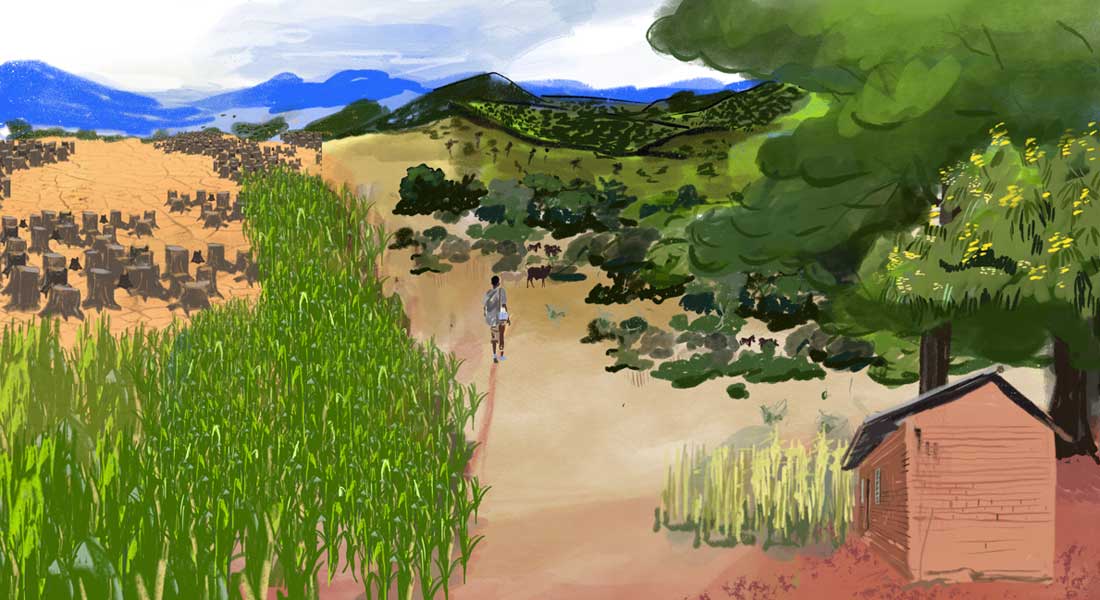Deforestation reduces fruit and vegetable consumption in rural Tanzania
New research from the Department of Geosciences and Natural Resource Management at UCPH explores a direct link between deforestation and people’s diets using data collected over 5 years from 1256 rural households in Tanzania. The study, published in the international magazine PNAS, suggests potential ‘win-wins’ of conserving forest landscapes, offering both environmental and food security benefits.

Achieving food security for an expanding global population is an unprecedented societal challenge. The dominant strategy for improving food security has historically been centred on intensifying agricultural production. Yet, this approach has not only failed to achieve food security for millions of people worldwide, but has also caused widespread environmental damage.
Postdoc Charlotte Hall and co-authors explored the linkages between deforestation and people’s diets using World Bank data collected over 5 years (2008-2013) from 1256 rural households in Tanzania. They found that deforestation caused a reduction in fruit and vegetable consumption of 14 grams per person per day, which was around 11 pct. of average daily intake. Specifically, deforestation reduced people’s ability to source wild forest foods (green leafy vegetables as well as mangoes and other fruits), which are an important source of micronutrients. Thus, forest loss also reduced the vitamin A adequacy of people’s diets.
Charlotte Hall explains;
“A growing body of research is investigating alternative strategies to protect and achieve food security worldwide. In rural areas of low- and middle-income countries, studies have found strong connections between living in or near to forests and people’s dietary quality. Our results point towards the ‘direct consumption pathway’ as the cause of this decline, whereby deforestation resulted in fewer forest foods being available to collect and consume”.
Important implications for policy makers
The study is the first of its kind to find a causal link between deforestation and people’s dietary quality, and the results have important implications for policy makers given that forests are largely overlooked in strategies to improve nutrition, but offer potential ‘win-wins’ in terms of meeting both nutrition goals as well as conservation and environmental goals.
Please find link to the paper here
About the Living Standards Measurement Study
The study used data collected by the World Bank program The Living Standards Measurement Study (LSMS) from 2008 – 2013 in Tanzania.
LSMS is the World Bank's flagship household survey program focused on strengthening household survey systems in client countries and on improving the quality of microdata to better inform development policies.
Bridging data gaps and helping countries, produce better data has been at the core of the LSMS mission since its inception in the early 1980s. Over the last four decades, the program has continuously evolved to contribute to methodological innovation and stay at the forefront of new data collection technologies in order to better respond to the changing data landscape and the shifting needs and priorities of the development community. The overarching goal of the LSMS is to foster the development and facilitate the adoption of new methods and standards in household data collection for evidence-based policymaking.
Related News
Contact
Postdoc
Charlotte Hall
chall@ign.ku.dk
+44 7775422346
Communications Coordinator
Anette Bill-Jessen
anbj@ign.ku.dk
+45 93511370
